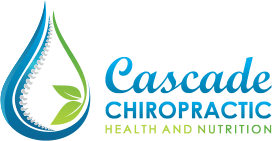In easy to understand terms, the medical question they were asking was: Does the body have the ability to adapt to its environment and sufficiently protect itself from disease? The answer came from Dr. Benjamin Rush (who also signed the Declaration of Independence), “Although a certain self-acting power does exist in the organism, it is subject to ordinary physical and chemical laws, and in any case, it is not strong enough to withstand the onslaughts of disease.” Since his limited understanding of the body was that it apparently could not defend itself, the next question was, “What is the role of the physician?” To this he answered, “Although physicians are in speculation the servants, yet waiting for the slow operations of nature to eliminate a supposed morbid matter from the body, art should take the business out of her hands.” Basically, he stated that nature takes too long and healing should be taken over by the physician. Sadly, that is where we find much of the medicine today. Physicians strive to create health in the short term; this can compromise the body’s ability to resist disease in the long term. One of the main theories about the cause of disease today is the germ theory, made popular by Louis Pasteur. According to germ theory, diseases are caused by microorganisms that invade the body and disturb its inner chemistry. Examples of germ theory are the search for a way to kill the AIDS virus, and the recent concern over Hepatitis B. The medical goal here is to kill the germs before they kill us. Imagine you and a friend are sitting talking to someone who has the flu with viral particles entering both of you, but you don’t get sick. Only your friend gets the flu. When that happens, and it does all the time, the virus cannot be the cause. It has to be something you don’t have in common. A competing theory is pleomorphism. It claims that the strength of your immune system is the determining factor in whether you get sick. Some things that can interfere with your immune system are lack of sleep, pH balance, consuming large amounts of sugar and junk food, and vertebral subluxation. In the same way that mosquitoes seek out stagnant water, viruses and bacteria search out and thrive in damaged or diseased tissue. If your body is healthy you don’t get sick, if your body is weak and unhealthy, you are susceptible to disease. Dr. Rush wasn’t completely wrong; we agree that some may not be strong enough to fight. It isn’t their fault however; they have interference in their ability to fight.
From a Nutrition and Lifestyle perspective, if your body is not given the necessary resources or is under a lot of stress, it can lead to an unhealthy host becoming a breeding ground for disease and infection. Just remove the interference, provide the necessary nutrients, and let the body do as nature intended!
Black, D. (1988). Heath at the Crossroads; Exploraing the Conflict between Natural Healing and Conventional Medicine. Lehi, UT: Tapestry Press.
Fassa, P. (2017, March 1). “The Truth About the Germ Theory.” Retrieved from www.greenmedinfo.com/blog/truth-about-germ-theory
Ji, S. (2017, April 16). “Why the Only Thing Influenza May Kill Is Germ Theory.” Retrieved from http://www.greenmedinfo.com/blog/why-only-thing-influenza-may-kill-germ-theory
